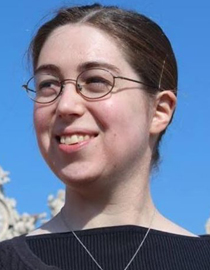
Faith
. . . When a deceased member of the faithful is found to be incorrupt, this can serve as a strong reminder to us of our belief in the "resurrection of the body" which we profess when we pray the Apostles' Creed.

Cooper
Q: Does the incorrupt body of the Benedictine nun, Sister Wilhelmina, mean that she is a saint? What does the church think of it? (Farmingville, New York)
A: We say that a saint is "incorrupt" when, years after their death, their mortal body is found to have remained in an unexplained state of preservation. That is, their body has not followed the expected natural process of decomposition. Some well-known incorrupt saints include St. Cecilia and St. Bernadette of Lourdes.
For a saint to be considered incorrupt, their body must not have been subjected to any deliberate artificial embalming process. Natural explanations for the lack of physical decay -- such as, for example, sustained cold temperatures due to climate or the specific chemical composition of the local soil potentially having preservative properties -- must also be ruled out.
While we can't come to any firm conclusions while the initial investigations are still ongoing, based on what we know so far it seems that Sister Wilhelmina's case meets these criteria: she was buried without embalming, and in moist Missouri ground that should have hastened the decomposition of a body. It's reported that since she had been buried for four years, her Benedictine community fully expected to find only her bones. It's particularly striking that while the cloth lining of her casket had disintegrated, Sister Wilhelmina's religious habit remained in near-perfect condition.
Yet the question of whether a person is incorrupt has no bearing on whether they will be eventually declared a saint. It's true that part of the canonization process involves exhuming the body of the proposed saint (essentially as a way of verifying their identity), but in the canonization process, the state of the person's mortal remains is of minimal relevance. What the church looks at first and foremost is the way the proposed saint lived their life. i.e., did they live a life of holiness and heroic Christian virtue? There are far, far more canonized saints who are not incorrupt and whose earthly bodies "returned to dust" in the normal way.
Still, when a deceased member of the faithful is found to be incorrupt, this can serve as a strong reminder to us of our belief in the "resurrection of the body" which we profess when we pray the Apostles' Creed. As the Catechism of the Catholic Church tells us: "In death, the separation of the soul from the body, the human body decays and the soul goes to meet God, while awaiting its reunion with its glorified body. God, in his almighty power, will definitively grant incorruptible life to our bodies by reuniting them with our souls, through the power of Jesus' Resurrection." (ccc 997)
Q: What is the rule on food and drink before or during Mass? I thought water was ok during Mass, but someone recently told me no water, and certainly no food, may be consumed within an hour of Mass. And are kids covered by this rule too? (Brandenburg, Kentucky)
A: In the Code of Canon Law, canon 919.1 states: "Whoever is to receive the blessed Eucharist is to abstain for at least one hour before holy communion from all food and drink, with the sole exception of water and medicine," (although can. 919.2 exempts priests celebrating multiple Masses on the same day from this rule and can. 919.3 goes on to likewise exempt the elderly and infirm).
So, strictly speaking it would be permissible to drink water right before Mass, or even during Mass if this is necessary. And since the rule refers to fasting before the reception of holy communion -- rather than before the start of Mass -- it's also acceptable to, for example, have a snack before the start of what you know will be an exceptionally long Mass.
Since the rule applies to those who will actually receive communion, children old enough to receive communion are required to fast, while younger children are not.
- Canonist Jenna Marie Cooper is a consecrated virgin, a practicing canon lawyer, and columnist for OSV News.
Recent articles in the Faith & Family section
-
Our Lady of DeliveranceJaymie Stuart Wolfe
-
The 'month of the dead' brings its own strange refreshmentBishop Robert Reed
-
Make New Friends, But Keep the OldMaureen Crowley Heil
-
A royal truthScott Hahn
-
St. Cecilia and hope in sacred songRichard Clark


















